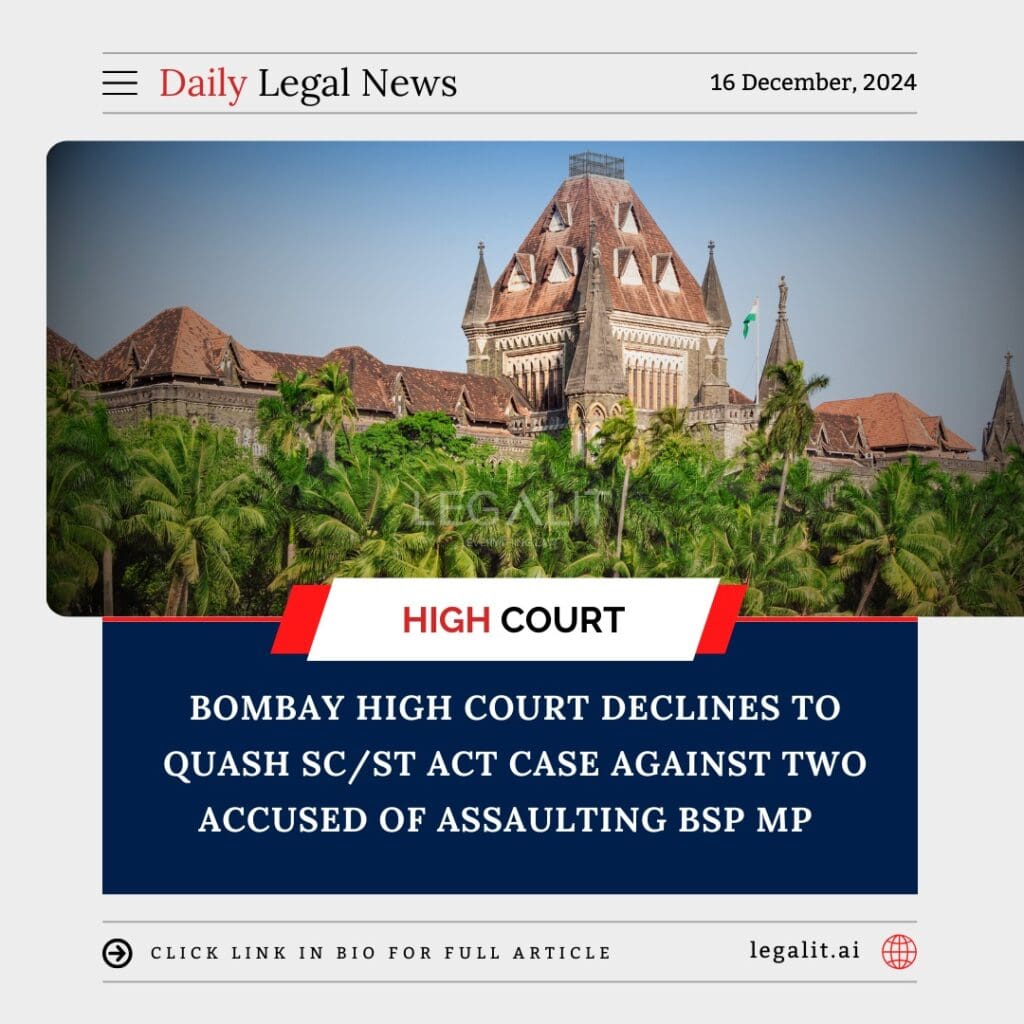
The Bombay High Court has refused to quash a case registered under the Scheduled Castes and Scheduled Tribes (Prevention of Atrocities) Act, 1989, against two individuals accused of slapping a Bahujan Samaj Party (BSP) Member of Parliament (MP). The court observed that the allegations require thorough investigation, especially considering the seriousness of offenses under the SC/ST Act.
Background:
The incident occurred during a public event, where the two accused allegedly assaulted the BSP MP. The FIR filed against them invoked provisions of the SC/ST Act, alleging that the act of violence was not only physical but also carried caste-based implications. The accused had approached the Bombay High Court seeking quashing of the FIR, arguing that the altercation was personal and not linked to caste prejudice.
Under the SC/ST Act, any act of violence or discrimination against a member of a Scheduled Caste or Scheduled Tribe that is motivated by their caste identity constitutes an offense. The law is designed to protect marginalized communities from atrocities and uphold their dignity.
Court’s Rationale:
The court, after reviewing the case, declined to interfere with the investigation at this stage. It emphasized that the allegations in the FIR are serious and prima facie attract the provisions of the SC/ST Act. The bench further noted that quashing the FIR without proper scrutiny could undermine the purpose of the legislation aimed at protecting vulnerable groups from discrimination and violence.
The court observed that the circumstances of the case, including the alleged public nature of the assault and its implications, warranted a detailed investigation to ascertain the intent and context of the incident.
Existing Legal Framework:
The SC/ST Act provides stringent provisions to deter atrocities against members of Scheduled Castes and Scheduled Tribes. It includes penal measures for acts of violence, social ostracism, and humiliation. The law also mandates special courts to handle such cases and offers protections to victims, including provisions for immediate relief and legal aid.
While the Act aims to ensure justice, courts have also highlighted the need to prevent its misuse. The judiciary has maintained a balanced approach, ensuring genuine cases are investigated while discouraging frivolous allegations.
Conclusion:
The Bombay High Court’s refusal to quash the SC/ST Act case against the accused reinforces the judiciary’s commitment to protecting the rights of marginalized communities. The decision emphasizes the importance of a comprehensive investigation in cases involving allegations under the SC/ST Act. As the case progresses, it will be closely watched for its implications on the enforcement of laws safeguarding vulnerable groups and addressing caste-based violence.